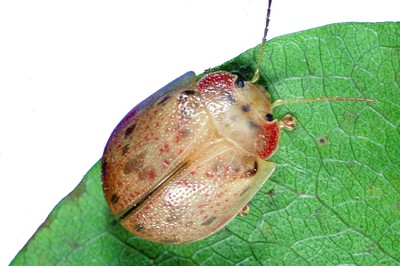Why every bug matters

Natural forests are declining at a rate of about 13 million hectares per year globally, taking many different species with them. As planted forests supply more of our wood and fibre needs, they also play a role in providing habitat for insect, plant and animal species. But why is it important to retain species diversity?
An article co-authored by Scion Principal Scientist, Ecki Brockerhoff, shows that biodiversity can pay dividends. The article describes how increased biodiversity can lead to higher rates of pollination, reduced pest populations, increased productivity, and greater resilience in forest and agroforest ecosystems. The key role for science is to better understand the effects of different ecosystem-management options on biodiversity and to better communicate the results to policy makers.
The paper entitled “Forest Biodiversity and the Delivery of Ecosystem Goods and Services: Translating Science into Policy” recently appeared in BioScience, an American journal that discusses global issues relating to life sciences. To obtain a copy see the publication website (www.jstor.org).
